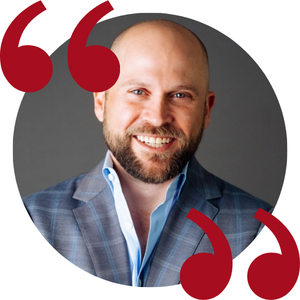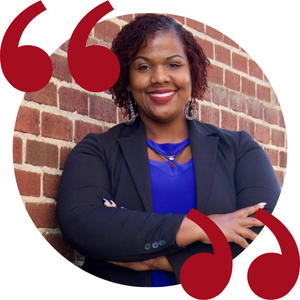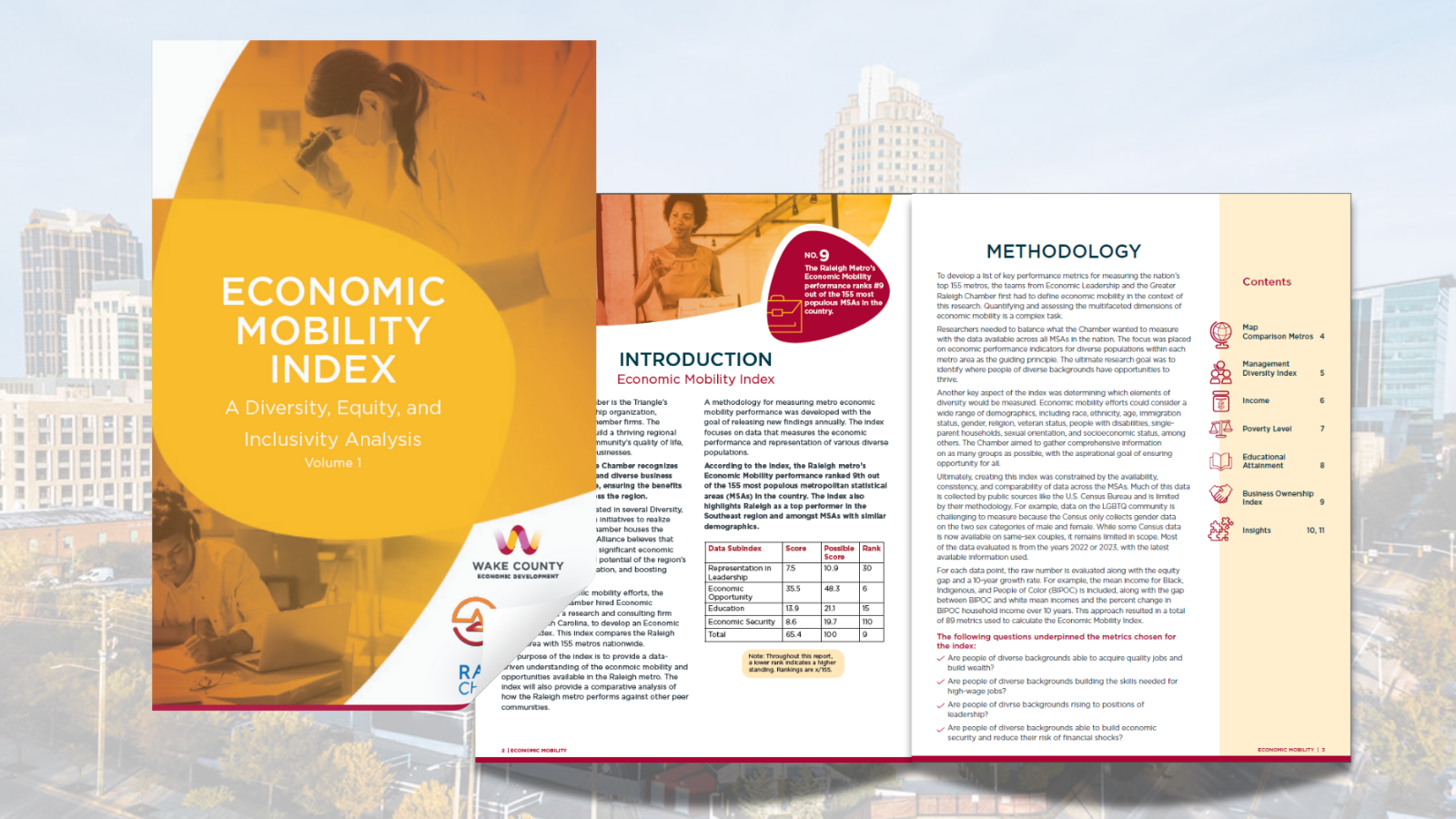Introduction
The Greater Raleigh Chamber is the Triangle’s largest business membership organization, comprised of over 1,800 member firms. The Chamber’s mission is to build a thriving regional
economy, enhance the community’s quality of life, and strengthen member businesses.To achieve these goals, the Chamber recognizes the necessity of a strong and diverse business community and workforce, ensuring the benefits of growth are shared across the region.
The Chamber has participated in several initiatives to realize this vision. To guide their economic mobility efforts, the Chamber hired Economic Leadership LLC, a research and consulting firm based in North Carolina, to develop an Economic Mobility Index. This index compares the Raleigh metro area with 155 metros nationwide.
The purpose of the index is to provide a datadriven understanding of the econmoic mobility and opportunities available in the Raleigh metro. The index will also provide a comparative analysis of how the Raleigh metro performs against other peer communities.A methodology for measuring metro economic mobility performance was developed with the goal of releasing new findings annually. The index focuses on data that measures the economic
performance and representation of various diverse populations.
According to the index, the Raleigh metro’s Economic Mobility performance ranked 9th out of the 155 most populous metropolitan statistical areas (MSAs) in the country. The index also
highlights Raleigh as a top performer in the Southeast region and amongst MSAs with similar demographics.
This webpage serves as a hub for the Economic Mobility Index resources, including an interactive Prezi presentation, downloadable PDF analysis, video interview, and blogs from our partners.
This study was funded through the generosity of the Truist Foundation and our EDGE investors.
Prezi
Index Analysis
Click the image above, or HERE to download the PDF.
Video Interview
Featured Blogs

Understanding the Economic Mobility Index: An Introduction
By Torri Staton, PhD
Director of Equitable Economic Development, Wake County Economic Development
In 2023, Wake County Economic Development and the Greater Raleigh Chamber, piloted a collaboration with Economic Leadership, LLC for a unique purpose: How do we measure economic mobility success in a metro area? Read more.

Economic Mobility Index and Economic Leadership LLC
By Skylar Elliott Casey
Lead Analyst, Economic Leadership LLC
When the Raleigh Chamber approached our firm, Economic Leadership LLC, to create a way to measure the Raleigh metro’s performance on economic mobility compared to other metropolitan areas in the country, we knew it would be an interesting challenge. Read more.

A Review of the Economic Mobility Index by Raleigh Economic Development
By: Kyle Touchstone
Director, Raleigh Economic Development
The economic mobility study is a crucial benchmark for Raleigh Economic Development's ongoing efforts. It helps us understand the community's opportunities and challenges, enabling us to take proactive steps toward smart and inclusive growth for everyone. Read more.

Economic Mobility Index and the City of Raleigh’s Disparity Study
By Lekesha R. Shaw
MWBE Program Manager, City of Raleigh
The City of Raleigh’s Disparity Study, completed in 2023 by Miller 3 Consulting, Inc., had an established purpose to determine if there is evidence showing disparities among ready, willing, and able Minority and Women Owned businesses (MWBE) across various areas. Read more.

Transforming the impact of Racial Equity Efforts in Raleigh-Cary through Data
By Christal E. Carmichael, LCMHC
Division of Race Equity Program Manager, Wake County Government
In a perfect world, we could pinpoint exactly what is needed to address the inequities in our community. We could call out the systems in place and provide a roadmap for targeted actions required to accomplish our equity goals. Read more.
